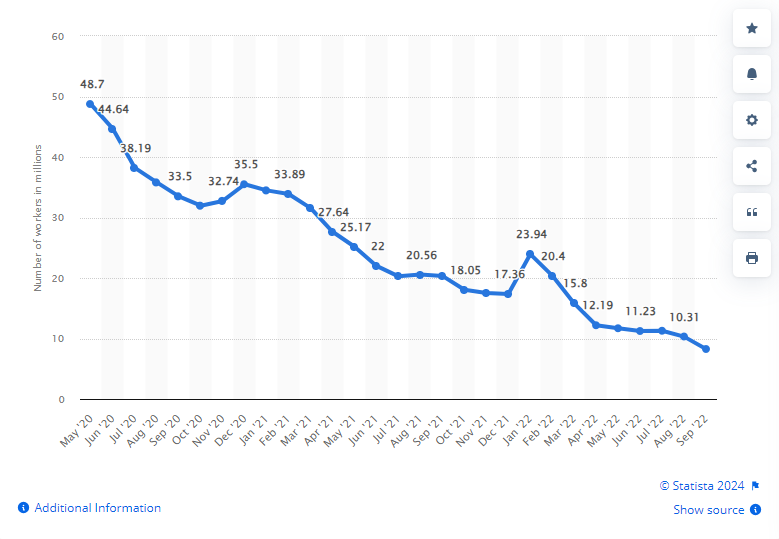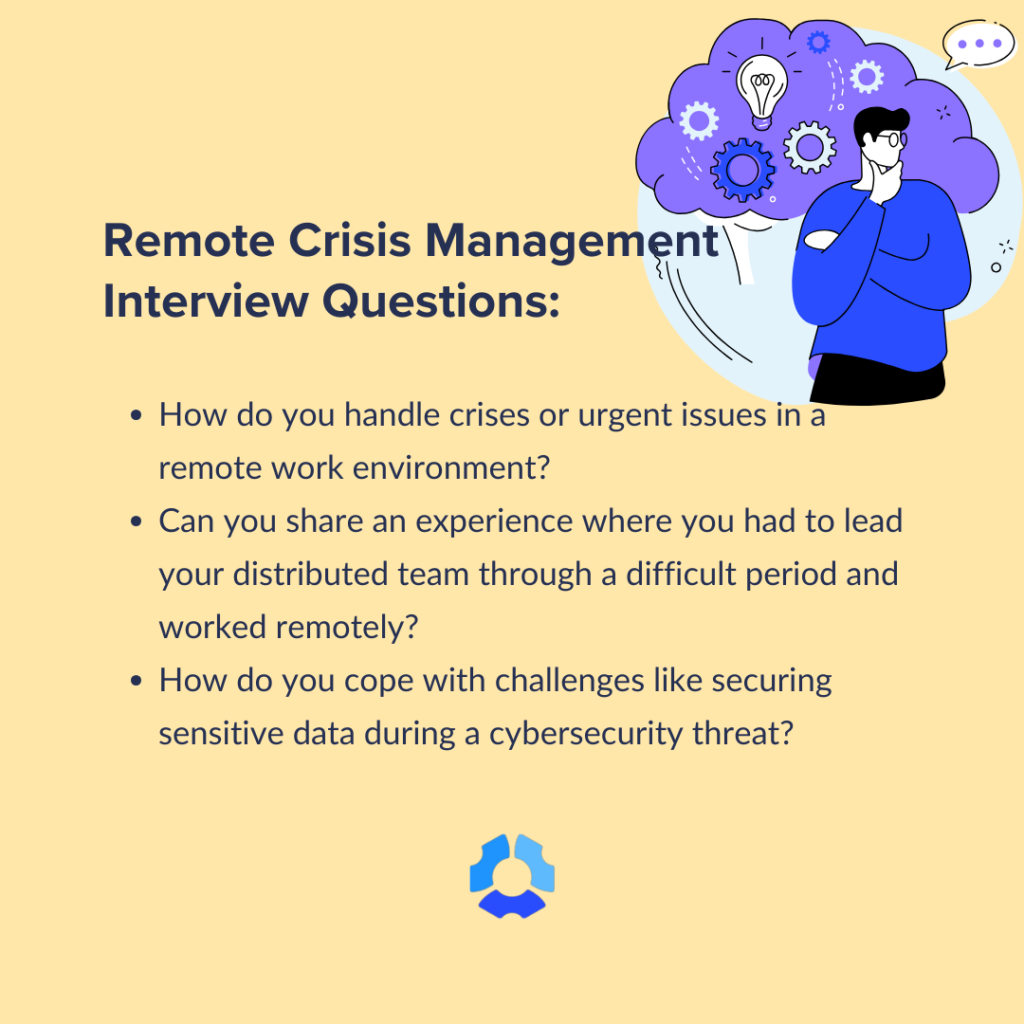Finding the right talent for remote roles is challenging. That’s why the classic interview playbook is finally getting an update with interview questions for remote managers.
Nowadays, it is more than hiring remote employees who can lead. It is also about recruiting someone who can lead from anywhere and work remotely. Asking the work-from-home interview questions will show if an applicant has the skills and traits for successful remote work.
This guide will focus on interview questions for remote managers, identifying successful remote teams who thrive in leadership and remote work office settings.
Boost your team’s efficiency with Hubstaff's productivity tools
Try it free for 14 daysCore Interview Questions for Remote Managers
Uncovering the traits of successful remote workers begins with asking the right questions. This strategy is crucial in discerning an applicant’s genuine leadership potential while working remotely.
Here are some examples of questions you can ask aspiring remote team members.
Leadership Experience for Remote Workers
During a remote job interview, one of the initial questions to ask candidates is, “Can you describe your experience with managing distributed teams remotely?” Clarifying this allows hiring managers to learn more about a candidate’s versatility in managing a remote team and suitability for a remote role.
An excellent follow-up question is, “How do you ensure your remote team feels connected and engaged?” With this query, hiring professionals can gauge the candidate’s remote work experience, particularly in making a workplace productive and welcoming for everyone.
Remember, listening for answers that show an understanding of remote leadership’s diverse challenges and opportunities is critical. Asking these questions gets you to the heart of the candidate’s ability to work with people from various parts of the world.
It is important to realize that A remote job is more than managing tasks; it’s about promoting team unity and belongingness despite the physical distances. So, look for answers that include ways to keep communication lines open while working remotely. Responses should also stress encouraging teamwork and ensuring all team members feel heard and respected.
The candidates’ responses can tell you about how they lead, inspire other team members, and motivate and engage remote teams.
Communication Skills for Your Remote Employees
Next, let’s focus on communication skills. Effective communication is integral to managing remote workers, like managing dispersed contact center reps. You can verify with applicants with questions like, “What communication tools and strategies do you prefer for remote team management?” Doing so will give you an insight into the individual’s familiarity with remote work software.
Learning how to adjust to various time zones or guarantee clear communication when direct contact is impossible is crucial. You may further probe with “How do you handle communication challenges in a remote working environment?” Asking this question will show the candidate’s resourcefulness when faced with a dilemma and different time zones.
Please note that strong communication skills are vital. They impact how well a remote manager can keep the team up-to-date and on the same page while working remotely. Beyond the tools they employ, what matters lies in how these skills are applied. The goal is to make conversation consistent, clear, and open.
Responses should also shed light on their approaches to keeping distributed teams together. It will also highlight how the applicant can inform team members about a project.
Adaptability and Problem-Solving in a Remote Team

(Image from Pexels)
Another question is, “Can you provide an example of a significant challenge you faced while managing a remote team and how you resolved it?” This will provide you with a picture of an applicant’s problem-solving and conflict-resolution skills while working remotely.
As a hiring manager, clarifying this matter will let you know how the individual handles unexpected changes in a remote position and sustains team productivity. A fitting follow-up question during a video call is, “How do you stay adaptable and responsive to sudden changes or issues in a remote work setting?”
These remote job interview questions will help you understand how ready the applicant is to tackle remote work issues. Go beyond what an aspiring manager knows in theory about remote work life. Clarify real-life events where remote workers had to think promptly on their feet.
Their replies will demonstrate how well they search for solutions, think critically, and develop ideas when time is short. It will likewise reflect how well they can maintain team performance and morale when things get tough while working remotely.
According to a recent study, the COVID-19 pandemic increased the number of people working remotely from home to 48.7 million in May 2020. This makes it crucial for a remote manager to adapt to their remote team’s problems with better problem-solving skills.

(Image from Statista)
Performance Management
Performance management is a vital duty of a remote manager in a distributed team. Hence, it is crucial to understand how people who’ve worked remotely measure employee performance.
You may ask the applicant, “What methods do you use to track and evaluate the performance of remote team members?”. This helps you get to the core of a team’s effectiveness and productivity from afar.
How they respond will reveal how well they adopt various tools and methods. These might include key performance indicators, project management tools, and routine check-ins. Think of it this way: It is more than monitoring progress. The remote working team must be accountable and always look for ways to grow, even if members are in different places.
Similarly, an interesting follow-up question is, “How do you address underperformance in a remote team?” Asking them about this matter helps you figure out how they handle one of the most challenging parts of remote position management: dealing with performance issues.
Observe how remote candidates reply to the topic. Their answer will give insight into their management approach. You could also ask: “Do you prefer structured development plans, supportive counsel, or stricter fines?”
Given the lack of in-person meetings, their responses will illustrate if they are excellent at providing constructive criticism online. Note that these questions will help you search for a remote worker possessing project management and leadership skills.
At the same time, it will help you hire a remote worker who can motivate a distributed team. With the right team in place, your remote team can do their best work regardless of location.
Building Remote Work Culture
As of 2023, 15% of job opportunities in the US are remote work. Because of this, building a solid work-from-home culture is necessary and beneficial. Asking a candidate, “How do you foster a strong team culture and sense of belonging among remote employees?” is sensible.
This question demonstrates how a remote talent will build and maintain a community of mutual respect in a remote environment. Of course, a flourishing remote work company culture depends on members feeling valued and included. That said, it’s easier said than done. One needs to learn this skill to be successful.
Furthermore, asking, “What initiatives have you taken in the past to boost team morale remotely?” lets you understand the measures they employ to boost team spirit. This way, you can learn about programs or activities they created. For instance, maybe they established virtual team-building exercises or online social events tailored to remote workers.
Based on the responses, you can discover leaders who can set up a tight-knit remote company where everyone feels comfortable. Remember, asking the right questions lets you determine whether a candidate can build a remote environment that keeps workers engaged and committed to the company’s mission.
Time Management and Organization Remote Job Interview Questions

Remote management requires outstanding time and organizational skills. It is wise to ask, “Are you familiar with remote work tools such as project management software, communication platforms, and time tracking tools?”.
This question shows the individual’s technical skills and comfort with the software necessary to work remotely. You can follow up by asking, “How do you integrate these into your management style?”.
Doing so allows you to illustrate further how they blend digital technology with their leadership approach. Knowing this detail will show their capacity to stay organized while keeping the team synergy.
Additionally, clarifying, “How do you ensure your team effectively uses technology to enhance productivity?” determines a remote job candidate’s capability to manage a technically proficient team. Inquiring about this matter reflects how well they know the platforms themselves and how they can instruct a team member to use the tools effectively.
One example of a candidate’s systematic structure approach is if they employ online calendars, task management tools, and daily Stand-ups. It conveys that they can make a well-organized but dedicated workspace that keeps all parties on the same page and encourages work.
Replies like these make it straightforward to assess the extent to which an applicant who worked remotely can manage remote teams. The goal is to identify a leader adept at using software and inspiring other team members to use it for maximum productivity and engagement.
Feedback and Development in a Distributed Team
An incredibly important skill for any manager is giving feedback and encouraging growth in a remote environment. So, you can ask, “How do you provide constructive feedback to your team remotely?”.
This way, you are peeling back layers on the individual’s effective communication skills, communication style, and sensitivity through digital channels. Asking this question will give you an idea of their strategies for constructive feedback that encourages improvement.
In the same way, verifying “What strategies do you employ to support the professional development of your distributed team members in a remote setting?” is equally telling. Aside from covering remote work training aspects, it reveals how they regulate their present duties with the long-term job growth of their subordinates.
Replies should display a proactive attitude to development—whether via routine skill-building sessions, online training courses, or focused career path discussions—are what you are searching for.
Crisis Management in Remote Working

Handling emergencies well is a must in remote work. So, ask candidates, ”How do you handle crises or urgent issues in a remote work environment?”. Doing so examines the candidate’s ability to stay focused and remain calm under pressure.
It will also show how great remote workers deal with problems that come out of the blue and how they can lead with determination. A follow-up question could be, “Can you share an experience where you had to lead your distributed team through a difficult period and worked remotely?”. This lets you dive deeper into their practical experience with crisis management.
You can likewise delve into particular scenarios, like how they would handle a pressing deadline amid a power outage, to gauge their flexibility. Another scenario could involve dealing with a project when vital remote employees suddenly fall ill, testing their ability to reassign tasks without losing momentum.
Or, as a hiring manager, ask, “How do you cope with challenges like securing sensitive data during a cybersecurity threat?” Asking this question can reveal their proactive measures for safeguarding company assets.
This questioning illustrates how great remote workers plan logically and keep operations going even when things go wrong outside their control. Such insights are invaluable in the interview process, assisting remote employers in finding resilient candidates.
Inclusivity and Diversity Questions
Finally, knowing how seriously a manager takes the significance of diversity and inclusion in the workplace is critical. When clarifying, “What steps do you take to ensure inclusivity in a remote role or team?” you want to know their commitment to creating an inviting and varied workplace remote positions.
A sensible follow-up question is, “How do you address team members’ different needs and backgrounds in a remote setting?” Their answer will demonstrate how they adjust their approach to leadership to accommodate different cultures and work styles to respect every member’s voice.
Remember that inclusion is more than simply the dynamics of a team; it is ensuring every remote worker feels respected and part of the group. To make your employees happy and productive, you can browse company swag ideas to show appreciation.
Such gestures are vital in building a positive remote work company culture where each staff feels personally valued.
Concluding Insights on Effective Interviewing for Remote Managers
People will continue working remotely and apply for remote positions.
Mark Lobosco of Talent Solutions at LinkedIn says, “Now that companies have built the framework—and experienced the cost and time savings associated with it—there’s no real reason to turn back.”
This trend highlights the importance of maintaining a work-life balance and creating a dedicated workspace for those working remotely. It underscores the need for a healthy work-life balance, where personal life and work-life balance remain prioritized alongside job responsibilities in a remote office setting.
The insights gained from these job interview questions will help hiring managers choose great remote workers ready for the distinctive dynamics of working remotely.
Please note only some candidates in your next remote job interview will have the same level of soft skills. However, those who can stay organized, communicate effectively, and survive the lack of in-person collaboration will be well-suited for remote roles.
Have any interview questions for remote managers you’d like to share?
Most popular
How to Calculate a Raise: Practical Guide for Employers
By 2030, the US alone will lose $430 billion annually due to low talent retention — and a lot of this turnover stems from low pa...
How to Survive and Thrive in an 80-Hour Work Week
It’s hard to believe that only a century ago, the 80-hour work week was the norm in the United States. Then, in 1926, the Ford M...
Mastering Workforce Scheduling: Techniques and Tools for Success
Imagine a workday where scheduling your workforce effectively ensures that every shift is perfectly aligned with your business nee...
Top Time Trackers for Virtual Assistants: Enhance Efficiency and Accountability
Virtual assistants (VAs) have a lot of responsibilities — and so do the people who hire them. With so much to keep track of, a t...




